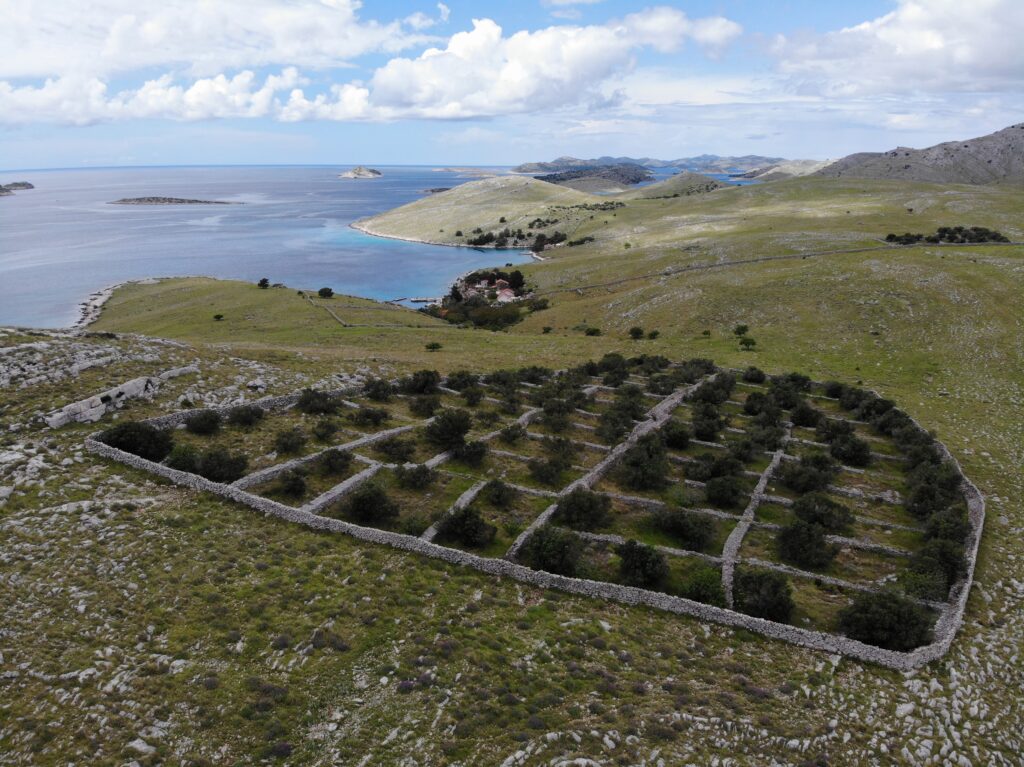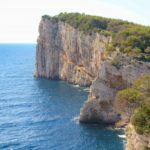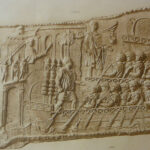In the heart of the Kornati archipelago, a remarkable story of determination, survival, and craftsmanship unfolds. The Donđvić Fence, a stunning olive grove, stands as a testament to the indomitable spirit of the people of Murter and their unwavering dedication to their land.
The 19th century transitioned into the 20th, and the Zadar nobility, former owners of the Kornati Islands, grappled with financial challenges due to evolving agricultural policies in Dalmatia. They were compelled to relinquish these pristine lands, leading to a change of ownership. In 1885, the residents of the humble village of Murter on Island Murter set out on a journey that forever linked them to the Kornati Islands. They acquired the island of Žut, and in 1896, they united with the people of Betina and Zaglav to obtain the island of Kornat and its associated islands, becoming the new owners of over 90% of the Kornati mainland.
Against this backdrop of change and opportunity, a poignant chapter in Kornati’s history unfolded. In 1918, after the ravages of World War I, one mother, acutely aware of the need for survival, encouraged her sons, Nikola and Roko Donđivić, to undertake an audacious endeavor. Guided by their mother’s wisdom, the brothers ventured to a one-hectare plot on the Kornat Island, just below the summit of Lučica, land acquired in 1896 and their lifeline.
Crafting a Marvelous Olive Grove in the Heart of Kornati Islands
Nikola, aged just 12, and Roko, 20, embarked on a journey that would occupy the next two decades of their lives. Armed with basic tools, including a pickaxe, hoe, crowbar, wedges, a steel club, and lighter stone-working implements, they toiled relentlessly. Their daily labor involved the daunting tasks of clearing the challenging karst terrain, breaking live rocks, moving stones, and constructing dry stone walls and passageways—without the assistance of cement or binding materials.
What makes the Donđvić Fence even more astonishing is the brothers’ sheer determination to survive during those challenging years. They were exceptionally poor and did not even have a boat to transport them from their hometown Murter to Kornati. Once a year, they ventured out to sea to fish Atlantic bonito, which provided them with the meager income necessary for survival throughout the year.
Bountiful Harvest and Enduring Legacy
The culmination of their two-decade-long endeavor is truly astonishing. They meticulously constructed a grove that encompasses approximately 40 rooms, adorned with 100 olive trees, 100 figs, and vines, creating a picturesque oasis. Located on a gentle north-south slope, this clever positioning strategically aligns with the eastern peaks, effectively dissipating dew, a crucial task during the flowering season. This, in turn, significantly contributes to a bountiful harvest. Consequently, the grove is not only picturesque but also productive, a testament to the fact that the brothers’ hard work was not in vain. Their labor continues to bear fruit, providing abundant harvests year after year, even to this day.
Before the tumultuous Second World War, the grove witnessed a poignant moment—a shared glass of wine, marking a celebration of resilience by the steadfast brothers. Over time, as the brothers built their families, their legacy became indelibly etched into the very stones of the grove. Today, their proud descendants carry the torch, continuing the annual olive harvest tradition, yielding exceptional olive oil and preserving their rich heritage.




